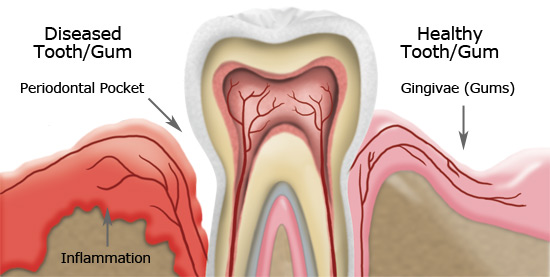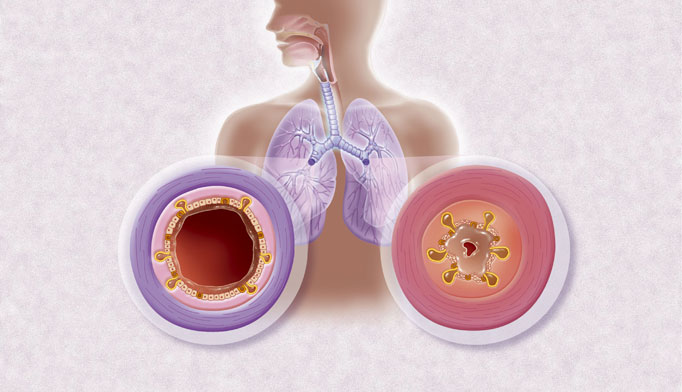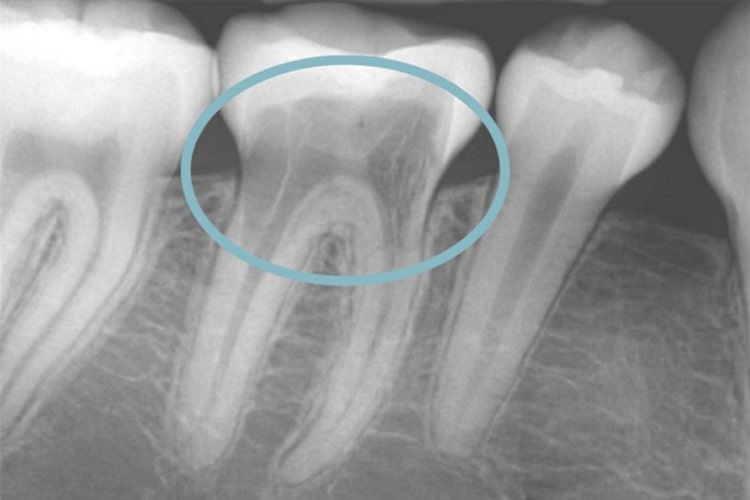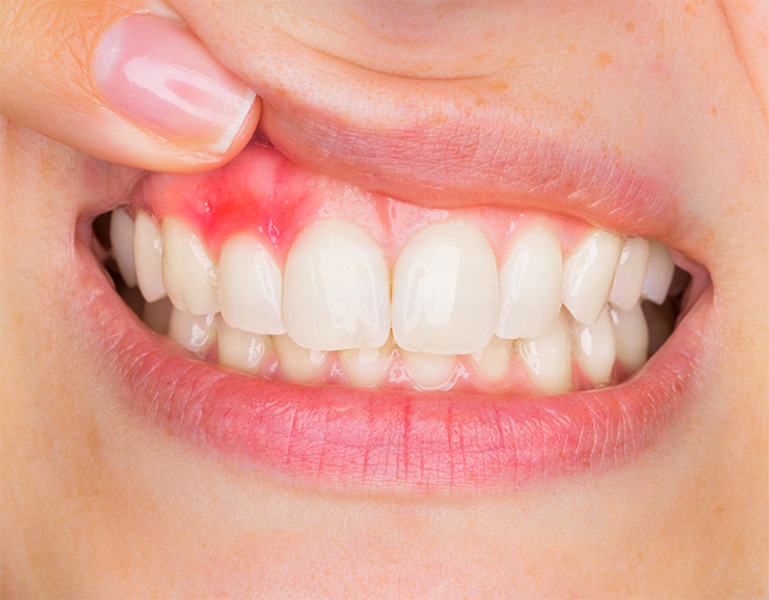
There are studies that showed that between 50 – 75% of people are affected by periodontal disease. More studies show that genetic factors contribute to the risk of developing periodontal disease for about 30% of Americans. These statistics are clear indication that periodontal disease can be a serious health concern especially if further research will show its link to other systemic diseases.
The common causes for periodontal disease include poor oral hygiene, tobacco use, medications, teeth grinding or bruxism, genetics, poor immune system, and systemic disease. Periodontal disease may be initially considered to affect only the teeth and gums. However, research made revealed that it influences the overall health and well-being of a person. Periodontal disease is a risk factor for various health conditions. Bacteria that causes gum disease which usually resides around the teeth can penetrate the bloodstream and affect the other organs and tissues in the body, in which case, the bacteria will release disease-causing agents that can lead to various inflammatory conditions including:
 Heart Disease
Heart Disease
Heart disease like periodontal disease is a chronic inflammatory disease. Persons with periodontal disease are at higher risk of having heart disease. Heart conditions such as high blood pressure, acute coronary syndrome or high cholesterol may result from severe periodontal infection.
Stroke
Gum diseases are said to increase the risk of coronary artery disease and stroke. Infected gums can be directly linked to an increased risk of reduced blood flow to the brain. Severe inflammation caused by periodontal disease may trigger a stroke.
 Cancer
Cancer
Other than the usual factors attributed to cancer – age, diabetes, smoking, body mass index, periodontal disease is also a risk factor for kidney, pancreatic, hematologic, head, neck, and lung cancers. Periodontal disease with severe inflammation is a major contributing factor to oral cancers.
Diabetes Mellitus
In simple term, it’s diabetes. A person with periodontal disease is at a higher risk of developing diabetes since the gum disease can cause the body to fail in maintaining balanced blood sugar levels. Conversely, a diabetic person is likely to develop periodontal disease due to the weakening of the immune system. People with diabetes are prone to infections, viruses and prolonged healing of wounds.
 Respiratory Infections
Respiratory Infections
Plaque-based bacteria that enter the lungs can cause respiratory conditions such as pneumonia. This explains the high number of cases of pneumonia and other respiratory conditions detected from patients with periodontal disease.
Rheumatoid Arthritis
This painful chronic inflammatory disease affecting the joints increases inflammation in periodontal disease in the same manner that severe periodontal disease will increase inflammation in rheumatoid arthritis. Patients with rheumatoid arthritis may be relieved of some symptoms if periodontal disease is treated.
 Birth and Pregnancy Complications
Birth and Pregnancy Complications
Pregnant women with periodontal disease are at an increased risk of premature delivery and low birth weight. The periodontal bacteria can cause inflammation of the uterus and cervix. Preeclampsia – a condition characterized by high blood pressure and excess protein, is likely to occur in women with periodontal disease.
Halitosis (Bad Breath)
This is a common outcome of periodontal disease – chronic bad breath, although this is more of a social concern. Proper dental care will be able to control halitosis. This means proper brushing, mouth rinsing, flossing, and tongue scraping.
As any dentist would advise, the best way in preventing and controlling periodontal disease is by keeping a good oral hygiene program that includes dental visits twice a year, and proper and consistent good oral hygiene practices. If one indulges in poor oral hygiene and develops periodontal disease, one can only guess what other diseases may arise from untreated and unaddressed periodontal disease.
Image via Google Images
- Detecting Oral Cancer Early: The Importance of Regular Screenings - April 7, 2024
- The Ultimate Guide to Dental Hygiene: Tips for a Healthy Smile - March 31, 2024
- Unraveling the Mystery of Tooth Resorption with St. Lawrence Dentistry - March 28, 2024













